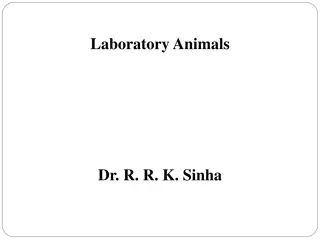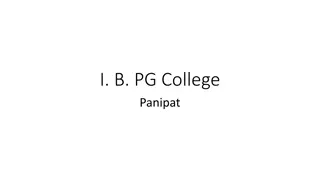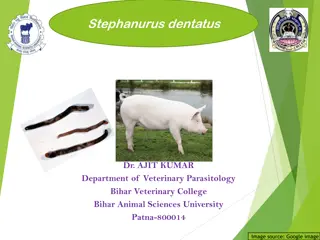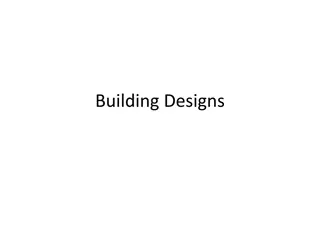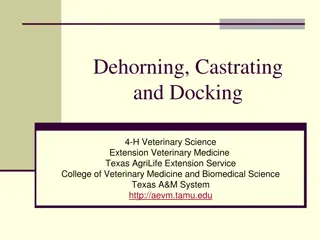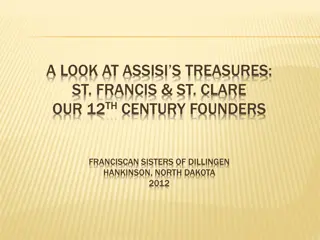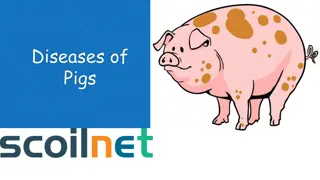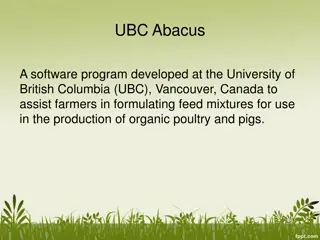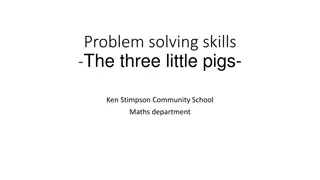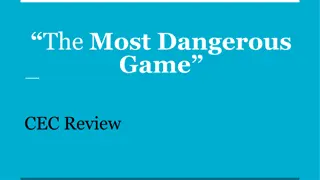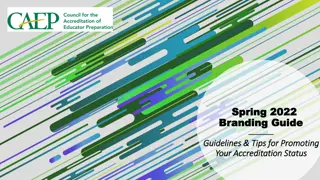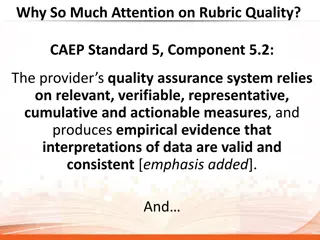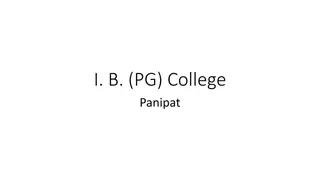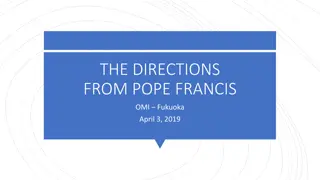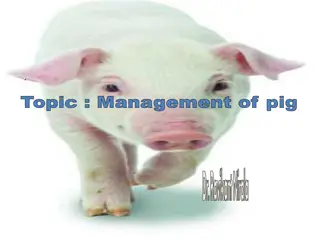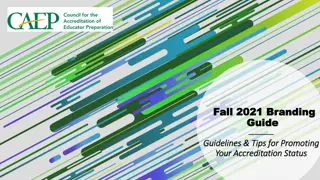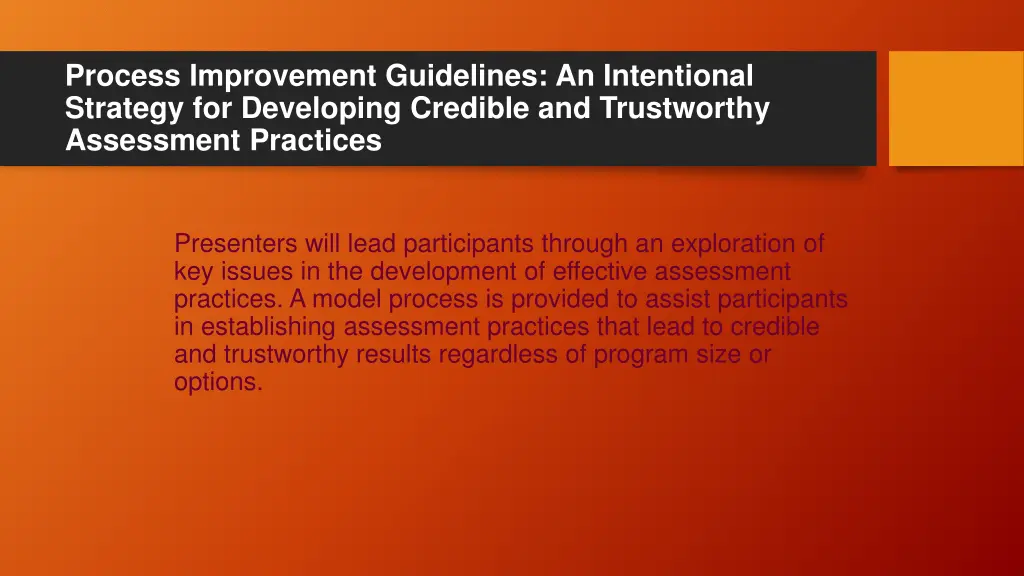
Developing Effective Assessment Practices Through Process Improvement Guidelines
Explore key issues in developing credible assessment practices with intentional strategies. Learn how to establish trustworthy assessment procedures regardless of program size or options. Benefit from a model process that ensures reliable results.
Download Presentation

Please find below an Image/Link to download the presentation.
The content on the website is provided AS IS for your information and personal use only. It may not be sold, licensed, or shared on other websites without obtaining consent from the author. If you encounter any issues during the download, it is possible that the publisher has removed the file from their server.
You are allowed to download the files provided on this website for personal or commercial use, subject to the condition that they are used lawfully. All files are the property of their respective owners.
The content on the website is provided AS IS for your information and personal use only. It may not be sold, licensed, or shared on other websites without obtaining consent from the author.
E N D
Presentation Transcript
Process Improvement Guidelines: An Intentional Strategy for Developing Credible and Trustworthy Assessment Practices Presenters will lead participants through an exploration of key issues in the development of effective assessment practices. A model process is provided to assist participants in establishing assessment practices that lead to credible and trustworthy results regardless of program size or options.
Things to Consider Why Do We Assess? Why Do Our Efforts Fail? What Are the Issues? Tell Us About Your Process? How Have You Tried To Make It Better?
SWOT Activity Strengths Weaknesses Opportunities Threats
Benefits of Process Improvement Guidelines Holistic Reflective Introspective Transparent Collegial Process Oriented Helps Insure Implementation with Fidelity Research Based / Empirically Based
Theorists Showalter Deming Schon Kolb Hall and Hord Knowles
Process Improvement Guidelines Model is Based in Scholarship, Best Practice, and Empirical Research Deming The Deming Cycle http://www.quality- improvement-matters.com/deming-cycle.html Kolb http://www.learningandteaching.info/learning/experience.ht m Hord & Hall Taking charge of change. Austin, TX: SEDL. Available from http://www.sedl.org/pubs/catalog/items/cha22.html Schon http://oregonstate.edu/instruct/pte/module2/rp.htm Knowles Andragogy and Adult Learning Principles - http://www.learningandteaching.info/learning/knowlesa.htm
Prepare During the preparation phase, intentional effort is made to identify what is known, what needs to be known, what resources are available, what resources need to be acquired, and the identification of potential direction that the organization needs to have before any major work is completed. This preparation phase is often overlooked in continuous improvement cycles, or when identified, is not provided the weight that it deserves. During the preparation phase it is important that organizations have the ability to draw upon the resources all of their knowledge management structures so that they are able to identify what is currently known, and take the steps necessary to obtain information and support that is nonexistent.
Prioritize During the prioritization face, individuals within organizations make value judgments as to what are the most important in salient features or aspects that need to be attended to or addressed during the change initiative. It is during this phase of the improvement process that individuals need to make intellectual decisions about areas of importance, as they attempt to leave the emotional or political influences at bay.
Plan Many continuous improvement projects begin with the plan stage. However, as we have recognize previously, planning needs to occur at a time in the process were support structures have been identified and resources have been utilized. Without these precursor supports, plans are created in such a way that potential ramifications for organizational actions are either misunderstood, misinterpreted, or disregarded. Successful organizations need to have a plan that guides the implementation of interventions, which ensures that all salient aspects of the change initiative are covered.
Implementation During the implementation phase, the interventions are delivered, and the results are seen. Contrary to popular belief, this is not a time of organizational inaction. Instead it is really important that systems attend to the recursive and reflective activities discussed in the model to ensure that continuous improvement occurs. Knowledge management structures are key during the implementation phase. They provide information support and direction necessary to ensure that the different actors are implementing in accordance with the direction they have been prescribed.
Evaluation During this time, results of the interactions and interventions are analyzed for their effect and impact on the organization, the individuals and systems impacted through the continuous improvement.
Value Added Component Reflection (IER) Identify the stage of the reflective process in which a specific topic or event is identified and refined by the individual or group participating in the process. Explore this stage is the opportunity to examine the event from multiple perspectives, review available research and information, and explore the many aspects of the topic or event. Resolve this stage may consist of plans for future action, a statement of belief or practice, a rationale, a demonstration of understanding, or a statement of an action to be taken. http://rayfrancis.wikispaces.com/IER+Model+of+Reflecton
CONTACT For More Information about the Strategic Planning and Data-Based Decision Making Development Model and/or Process Improvement Guidelines Contact: Ray W. Francis Phone (989)774-7701 franc1rw@cmich.edu Mark E. Deschaine Phone (989)774-2794 desch1me@cmich.edu


